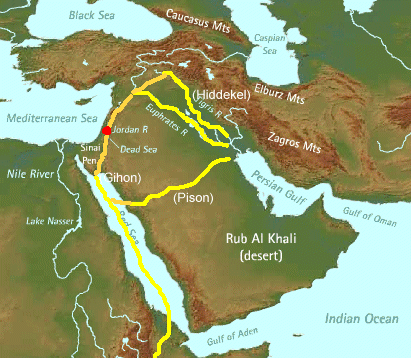Nehemiah and Jeremiah Confirmed By History
….
Archaeologists continue to certify the historical record of the Word of God. The following excerpts are from the International Jerusalem Post under the heading, “Seal of First Temple servants found in Jerusalem.” Note that the temple mentioned in the article was built by King Solomon, the son of King David, nearly 3,000 years ago.
God’s Word is a reliable history book.
GOD SAID, Psalms 19:9:
Archaeologists continue to certify the historical record of the Word of God. The following excerpts are from the International Jerusalem Post under the heading, “Seal of First Temple servants found in Jerusalem.” Note that the temple mentioned in the article was built by King Solomon, the son of King David, nearly 3,000 years ago.
A stone seal bearing the name of one of the families who acted as servants in the First Temple and then returned to Jerusalem after being exiled to Babylonia has been uncovered in an archeological excavation in Jerusalem’s City of David, a prominent Israeli archeologist said on January 16.The next account is from the January-February 2008 issue of the periodical, Archaeology. The headline reads, “Nebo-Sarsekim Tablet, The British Museum, UK:”
The 2,500-year-old black stone seal, which has the name “Temech” engraved on it, was found last week amid stratified debris in the excavation under way just outside the Old City walls near the Dung Gate, said archeologist Dr. Eilat Mazar, who is leading the dig.
According to the Book of Nehemiah, the Temech family were servants of the First Temple and were sent into exile to Babylon following its destruction by the Babylonians in 586 BC.
The family was among those who later returned to Jerusalem, the Bible recounts.
The Bible refers to the Temech family: “These are the children of the province, that went up out of the captivity, of those that had been carried away, whom Nebuchadnezzar the king of Babylon had carried away, and came again to Jerusalem and to Judah, every one unto his city.” [Nehemiah 7:6]… “The Nethinim [7:46]”… The children of Temech.” [7:55].
“The seal of the Temech family gives us a direct connection between archeology and the biblical sources and serves as actual evidence of a family mentioned in the Bible,” she said. “One cannot help being astonished by the credibility of the biblical source as seen by the archaeological find.”
The find was officially announced by Mazar at the eighth annual Herzliya Conference on January 20.
The archeologist, who rose to international prominence for her recent excavation that may have uncovered King David’s palace, most recently uncovered the remants of a wall from Nehemiah’s time. [End of quote]
Last June, Austrian Assyriologist Michael Jursa was doing what he has done since 1991, poring over the more than 100,000 undeciphered cuneiform tablets in the British Museum. But while analyzing records from the Babylonian city of Sippar, he made a startling discovery with Biblical implications. It came in the unlikely form of a tablet noting a one‑and‑a‑half pound gold donation to a temple made by an official, or “chief eunuch,” Nebo‑Sarsekim.The Babylonian, Mr. Sarsechim, is listed in Jeremiah 39:3. I must mention that the Masoretic Text of the King James Version does not show him as the one given charge over Jeremiah (Jeremiah 39:11), but the point of the author is still valid. Sarsechim is recorded in the scriptures and ancient Babylonian records, as well.
“At first I was just pleased to have found a reference to the title ‘chief eunuch,’ as these officials are mentioned very rarely in the sources,” says Jursa. “Then it suddenly came to me that this text was very close chronologically to an episode narrated in Jeremiah 39 in which Nebo‑Sarsekim is mentioned, and that I might actually have found the very man. So then I got quite excited and instantly went and checked (and double‑checked) the exact spelling of the name in the Hebrew Bible and saw that it matched what I had found in the Babylonian text!”
The tablet is dated 595 B.C., the ninth year of Nebuchadnezzar II’s reign. The Book of Jeremiah relates that after Nebuchadnezzar took Jerusalem in 587 B.C., he committed the prophet Jeremiah to Nebo‑Sarsekim’s care.
“It is so incredibly rare to find people appearing in the Bible, who are not kings, mentioned elsewhere,” says Jursa. “Something like this tablet, where we see a person mentioned in the Bible making an everyday payment to the temple in Babylon and quoting the exact date, is quite extraordinary.” [End of quote]
God’s Word is a reliable history book.
GOD SAID, Psalms 19:9:
The fear of the LORD is clean, enduring for ever: the judgments of the LORD are true and righteous altogether.GOD SAID, Psalms 119:160:
Thy word is true from the beginning: and every one of thy righteous judgments endureth for ever.- See more at: http://www.godsaidmansaid.com/topic3.asp?Cat2=262&ItemID=1055#sthash.uUr00sa2.dpuf


Comments